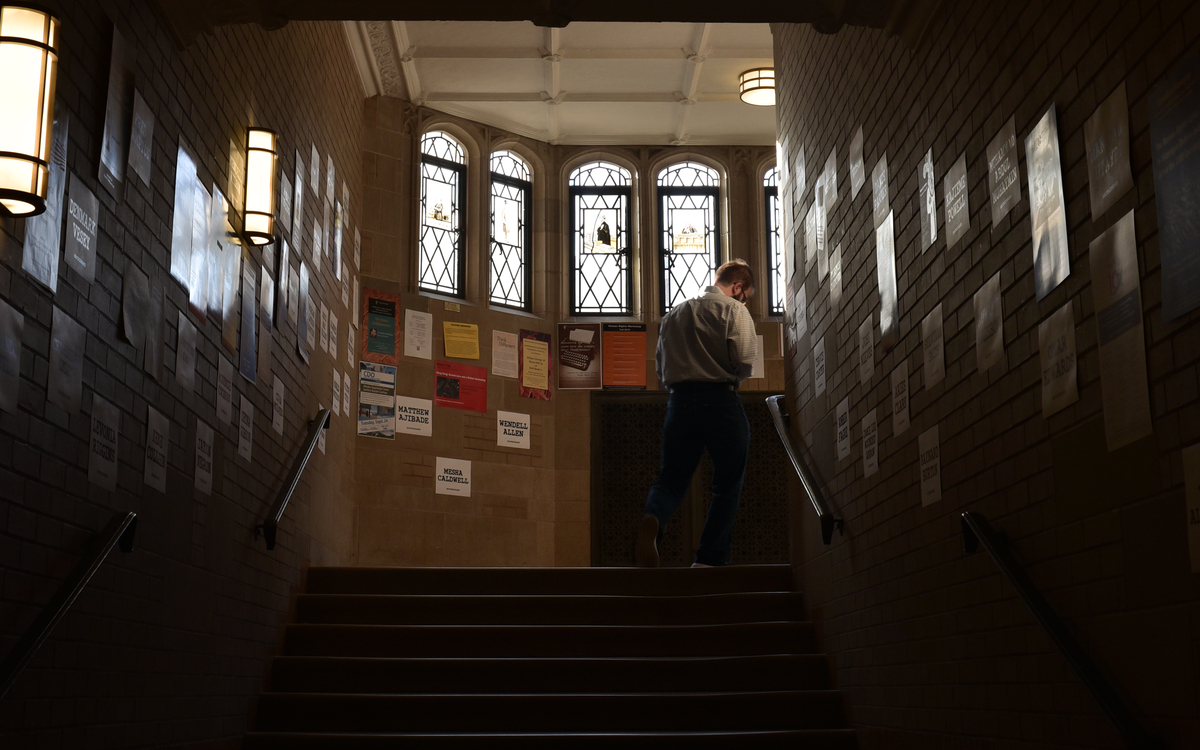
Ryan Chiao, Senior Photographer
One of the two law students who filed the Nov. 15 lawsuit against the Law School for allegedly “blackball[ing]” them from professional opportunities — including the Coker Fellowship, a coveted position for third-year law students — did in fact receive the fellowship, contrary to a central claim in the complaint.
The students, Sierra Stubbs LAW ’23 and Gavin Jackson LAW ’22, filed the suit anonymously against the University, claiming that Law School administrators pressured them to endorse a statement against law professor Amy Chua. Their complaint details a series of damages, including the loss of the prestigious fellowship, for which they are seeking a minimum of $150,000. Yet the Law School’s annual bulletin includes a list of the students awarded Coker Fellowships and shows that Stubbs was given the role.
“[Yale Law School Dean Heather Gerken, Associate Dean Ellen Cosgrove and Diversity, Equity, and Inclusion Director Yaseen Eldik] also approached the professor to dissuade him from offering a Coker Fellowship to Jane and John because they refused to make statements against Chua,” the complaint reads. “As such, both Jane and John lost the Coker Fellowship, and will potentially suffer further losses in the form of clerkships.”
In a previous statement to the News, University spokesperson Karen Peart described the lawsuit as “factually and legally baseless.” Chua, law professor Paul Kahn, Stubbs and Jackson did not respond to multiple requests for comment.
The lawyer for the plaintiffs, John Balestriere LAW ’98, stood by the allegations detailed in the complaint and told the News that previous attempts to resolve this issue had failed, forcing the plaintiffs to file this suit.
“Our clients stand by their allegations and while I’ve welcomed the opportunity to discuss the allegations with the administration they have thus far declined to do so,” Balestriere wrote in an email to the News. “[The plaintiffs] attempted to negotiate a resolution prior to filing suit. The administration declined. They are prepared to have a jury hear their case.”
David Lat LAW ’99, the author of “Original Jurisdiction” — a newsletter about law and the legal profession — detailed how this development may impact the case and its legal standing. He said that the information will affect the question of damages and liability, while also possibly undermining the legal standing of the case.
While Lat noted that it would be problematic for Law School administrators to blackball students for refusing to lie, which the suit claims, lawsuits are primarily concerned with damages to the plaintiffs.
“A lawsuit also involves damages,” Lat said. “And if someone did something bad to you, but it didn’t injure you in any way, then that is something of a problem for your lawsuit.”
Lat explained that in legal matters, “standing” refers to the right to sue another individual based on injury from wrongful conduct. Without this injury, he said the plaintiffs would be without standing to sue.
He added that in order to get a remedy from a court — in this case a monetary reward — the plaintiffs must be able to show that they were “injured in some way.”
“It certainly goes to the issue of liability or damages, but it could also undermine the core of the lawsuit itself,” he said.
In a subsequent conversation with the News, however, Balestriere explained that the damages do not refer simply to the awarding of the fellowship, but rather to the fact that his client took a leave of absence from the Law School as a result of this incident — and therefore did not undertake the fellowship.
Balestriere did not confirm the identities of either of his clients.
“She felt forced to leave the school and thus could not serve as a Coker fellow,” Balestriere said. “She lost her Coker fellowship, because of the administration’s misconduct.”
In a previous conversation with the News, Lat suggested that one possible goal for this lawsuit is what might be produced during the discovery process.
“They want to get documents, they want to subpoena the other side [and] get internal emails between Gerken, Cosgrove and Eldik,” he said. “All of those emails would be… discoverable, meaning that they can be produced and turned over to the plaintiffs. The other thing about discovery is you get to ask questions of the relevant people under oath or deposition.”
By contrast, Balestriere argued that the damages extend beyond the fellowship, in that both of the plaintiffs suffered reputational harm. He said that they are now both not “thought of well” within the Law School community and were socially ostracized because of the administration’s actions.
The lawsuit includes a total of seven causes of action, only two of which — defamation and intentional interference with prospective business relationships — make explicit reference to Stubbs’ and Jackson’s alleged loss of the Coker Fellowship.
The lawsuit was filed in the United States District Court for the District of Connecticut.







